-


- Back
- Back
-
Back
Homeschool Bundles
Bible
History
Literature
Math
Latin
Science
Resources
Video
Canon Press Gift Card
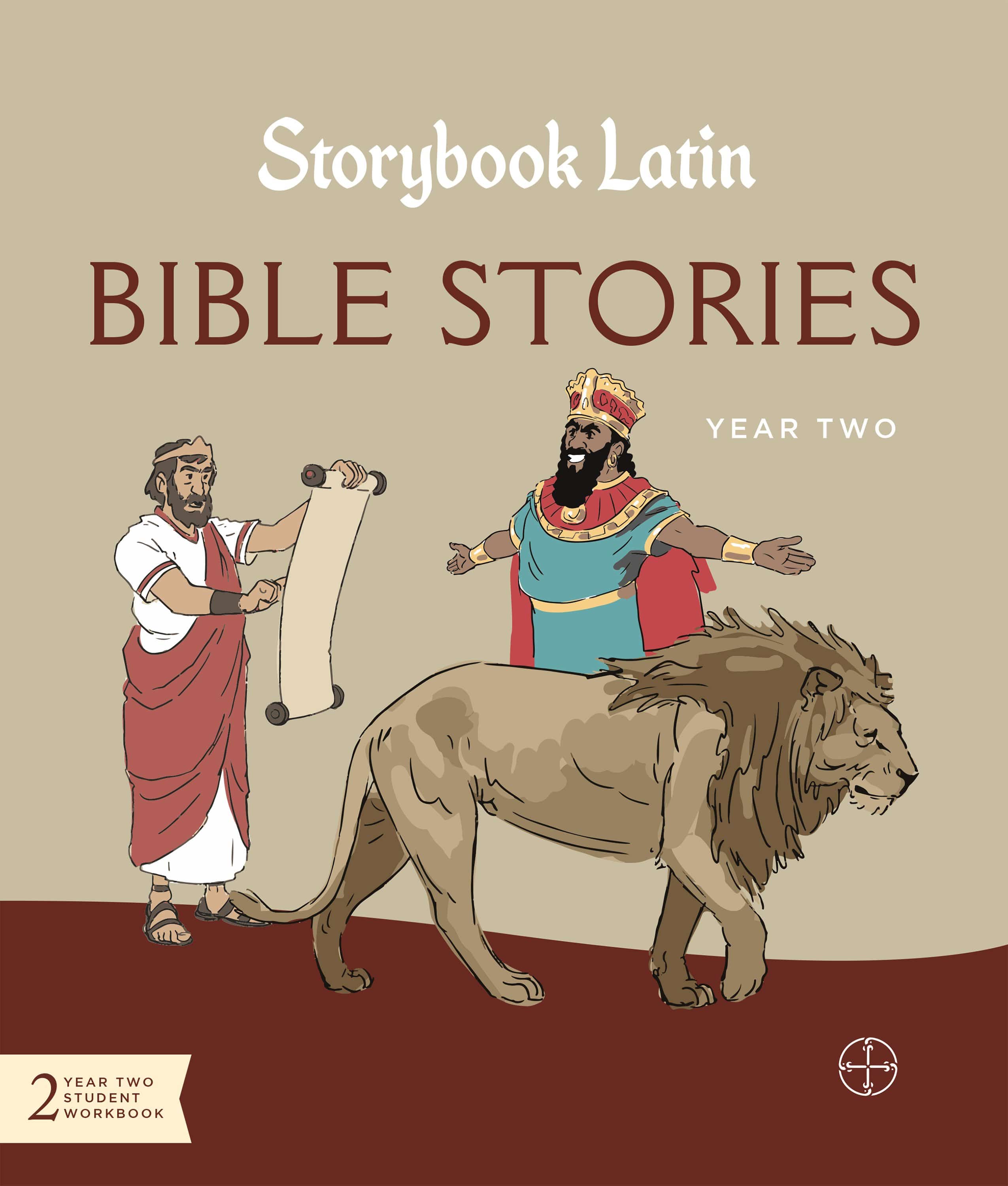
Latin through pictures, stories, conversations.
Learn More
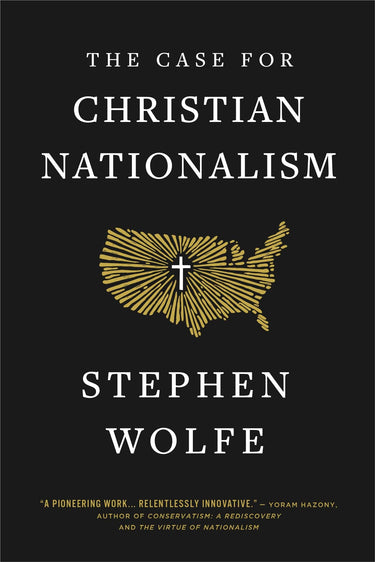
Few “experts” answering this question actually know what nationalism is–and even fewer know what could make it Christian. In The Case for Christian Nationalism, Stephen Wolfe offers a tour-de-force argument for the good of Christian nationalism, taken from Scripture and …
Read more

Few “experts” answering this question actually know what nationalism is–and even fewer know what could make it Christian. In The Case for Christian Nationalism, Stephen Wolfe offers a tour-de-force argument for the good of Christian nationalism, taken from Scripture and Christian thinkers ancient, medieval, and modern. Christian nationalism is not only the necessary alternative to secularism, it is the form of government we must pursue if we want to love our neighbors and our country.
Wolfe shows that the world’s post-war consensus has successfully routed the United States towards a gynocratic Global American Empire (GAE). Rather than the religious right’s golden calf, Christian nationalism is the idea that people in the same place and culture should live together and seek one another’s good. The grace of the gospel does not eliminate our geography, our people, and our neighbors. Instead, it restores us to pursue local needs and local leadership freely and without apology.
If you want to be able to answer the political debate raging today, you must understand the arguments in The Case for Christian Nationalism .
Includes The Companion to The Case for Christian Nationalism.

And when He does it again, Christians must be ready to take the lead.
Jesus really is the answer to Taxes, Civil Resistance, and speech laws. However, Christians do not need another political platform. They need a plan. This book is that plan.
"If we succeed, this will not be Christian America. If we succeed, this will be the Christian America as the prodigal son, tired of the pig food, coming home to his father."
You may not live in Christendom now, but your great-grandkids could.
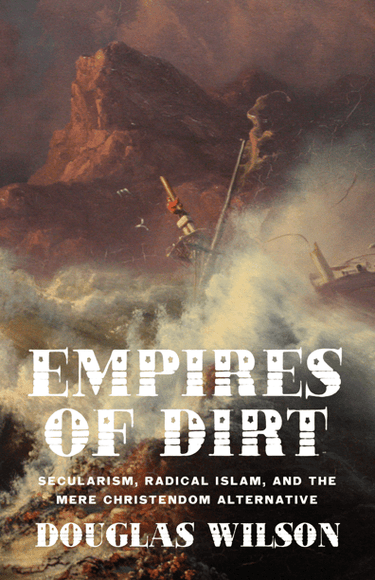
American exceptionalism, the belief that America is more than a nation, is folly. Radical Islam is obviously wrong as well, but Muslims at least own the nature of the current cultural conflict: You must follow somebody, whether it's Allah, the State, or Jesus Christ. This important and timely book is an analysis of the changing face of religion and politics and also an extended argument for Christian expression of faith in Jesus Christ. This does not mean a withdrawal from politics to our own communities and churches. Instead, we Christians must take what we have learned from the wreck of secularism and build a Christendom of the New Foundation: A network of nations bound together by a formal, public, civic acknowledgement of the lordship of Jesus Christ and the fundamental truth of the Apostles' Creed. "And you could have it all, My empire of dirt...." ~ Nine Inch Nails; Johnny Cash
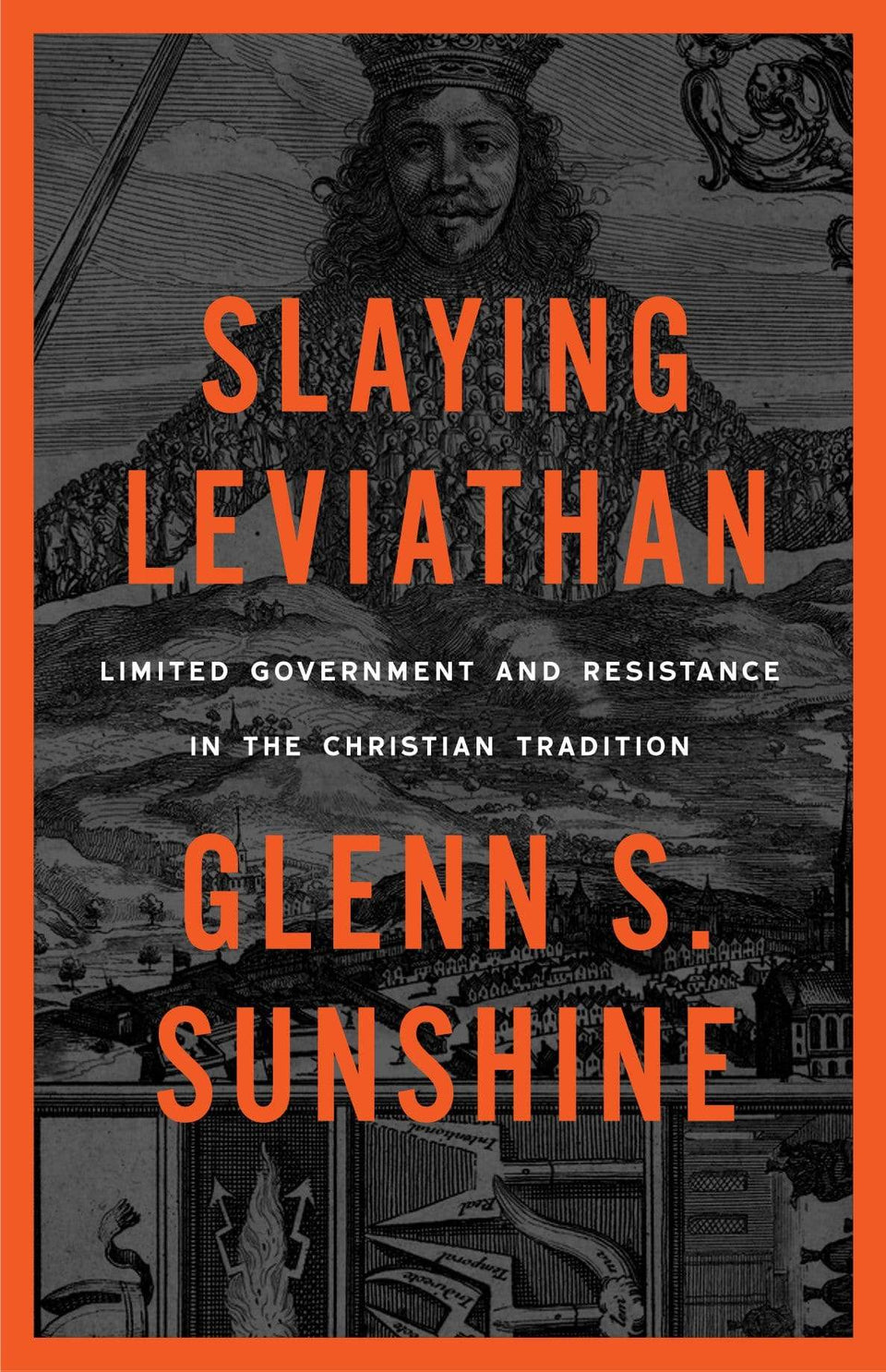
Leviathan is rising again, and the first weapon we must recover is the longstanding Christian tradition of resisting governmental overreach. Our bloated bureaucratic state would have been unrecognizable to the Founders, and our acquiescence to its encroachments on liberty would have infuriated them. But here is the point: our Leviathan would not have surprised them. They were well acquainted with the tendency of governments to turn tyrannical: “Eternal vigilance is the price we pay for liberty.”
In Slaying Leviathan , historian Glenn S. Sunshine surveys some of the stories and key elements of Christian political thought from Augustine to the Declaration of Independence. Specifically, the book introduces theories of limited government that were synthesized into a coherent political philosophy by John Locke. Locke, of course, influenced the American founders and was, like us, fighting against the spirit of Leviathan in his day. But his is only one of the many stories in this book.
Includes the Slaying Leviathan Group Discussion Guide.
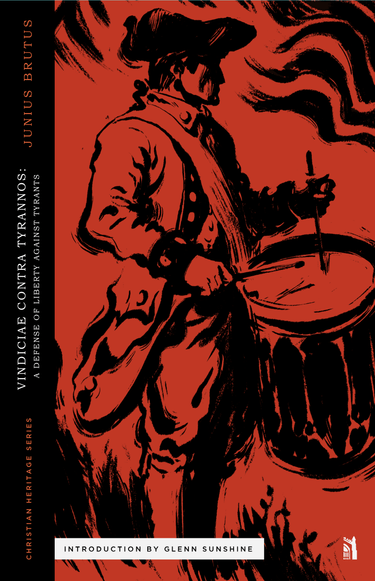
In 1572, Roman Catholic soldiers slaughtered thousands of French Huguenots for their Protestant faith.
This calamity forced many Protestants to ask whether taking up arms against a king was even lawful.
Many Christians thought that even in the case of persecution, kings had absolute power and lesser magistrates had no right to resist them.
Vindiciae Contra Tyrannos: A Defense of Liberty Against Tyrants, written by an anonymous Huguenot, is a powerful tract that makes a case for why Christians can sometimes lawfully resist and fight against tyrants and persecutors of the faith.
The apostles told the Jews that they needed to obey God rather than man when it came to the Gospel, and to this day many Christians need to be reminded that men only derive their power from God and there are indeed times when resisting the authorities may be lawful and even biblically required.
This tract is thoroughly biblical and a great testament to the courage and convictions of our fathers in the faith.

Few “experts” answering this question actually know what nationalism is–and even fewer know what could make it Christian. In The …
Read more

Few “experts” answering this question actually know what nationalism is–and even fewer know what could make it Christian. In The Case for Christian Nationalism, Stephen Wolfe offers a tour-de-force argument for the good of Christian nationalism, taken from Scripture and Christian thinkers ancient, medieval, and modern. Christian nationalism is not only the necessary alternative to secularism, it is the form of government we must pursue if we want to love our neighbors and our country.
Wolfe shows that the world’s post-war consensus has successfully routed the United States towards a gynocratic Global American Empire (GAE). Rather than the religious right’s golden calf, Christian nationalism is the idea that people in the same place and culture should live together and seek one another’s good. The grace of the gospel does not eliminate our geography, our people, and our neighbors. Instead, it restores us to pursue local needs and local leadership freely and without apology.
If you want to be able to answer the political debate raging today, you must understand the arguments in The Case for Christian Nationalism .
Includes The Companion to The Case for Christian Nationalism.

And when He does it again, Christians must be ready to take the lead.
Jesus really is the answer to Taxes, Civil Resistance, and speech laws. However, Christians do not need another political platform. They need a plan. This book is that plan.
"If we succeed, this will not be Christian America. If we succeed, this will be the Christian America as the prodigal son, tired of the pig food, coming home to his father."
You may not live in Christendom now, but your great-grandkids could.

American exceptionalism, the belief that America is more than a nation, is folly. Radical Islam is obviously wrong as well, but Muslims at least own the nature of the current cultural conflict: You must follow somebody, whether it's Allah, the State, or Jesus Christ. This important and timely book is an analysis of the changing face of religion and politics and also an extended argument for Christian expression of faith in Jesus Christ. This does not mean a withdrawal from politics to our own communities and churches. Instead, we Christians must take what we have learned from the wreck of secularism and build a Christendom of the New Foundation: A network of nations bound together by a formal, public, civic acknowledgement of the lordship of Jesus Christ and the fundamental truth of the Apostles' Creed. "And you could have it all, My empire of dirt...." ~ Nine Inch Nails; Johnny Cash

Leviathan is rising again, and the first weapon we must recover is the longstanding Christian tradition of resisting governmental overreach. Our bloated bureaucratic state would have been unrecognizable to the Founders, and our acquiescence to its encroachments on liberty would have infuriated them. But here is the point: our Leviathan would not have surprised them. They were well acquainted with the tendency of governments to turn tyrannical: “Eternal vigilance is the price we pay for liberty.”
In Slaying Leviathan , historian Glenn S. Sunshine surveys some of the stories and key elements of Christian political thought from Augustine to the Declaration of Independence. Specifically, the book introduces theories of limited government that were synthesized into a coherent political philosophy by John Locke. Locke, of course, influenced the American founders and was, like us, fighting against the spirit of Leviathan in his day. But his is only one of the many stories in this book.
Includes the Slaying Leviathan Group Discussion Guide.

In 1572, Roman Catholic soldiers slaughtered thousands of French Huguenots for their Protestant faith.
This calamity forced many Protestants to ask whether taking up arms against a king was even lawful.
Many Christians thought that even in the case of persecution, kings had absolute power and lesser magistrates had no right to resist them.
Vindiciae Contra Tyrannos: A Defense of Liberty Against Tyrants, written by an anonymous Huguenot, is a powerful tract that makes a case for why Christians can sometimes lawfully resist and fight against tyrants and persecutors of the faith.
The apostles told the Jews that they needed to obey God rather than man when it came to the Gospel, and to this day many Christians need to be reminded that men only derive their power from God and there are indeed times when resisting the authorities may be lawful and even biblically required.
This tract is thoroughly biblical and a great testament to the courage and convictions of our fathers in the faith.
Get special deals and discounts by subscribing to our weekly newsletter. Unsubscribe at any time.